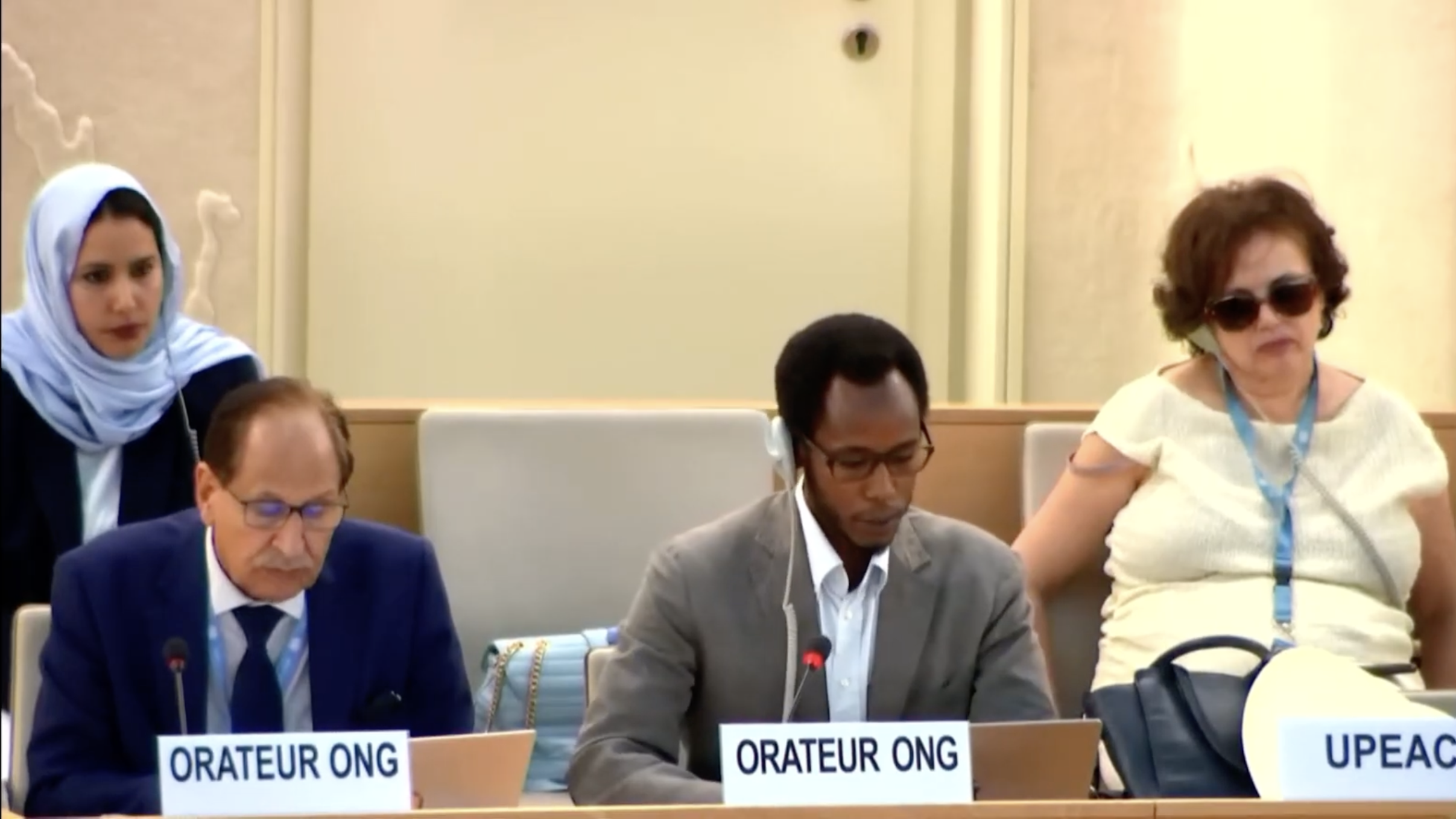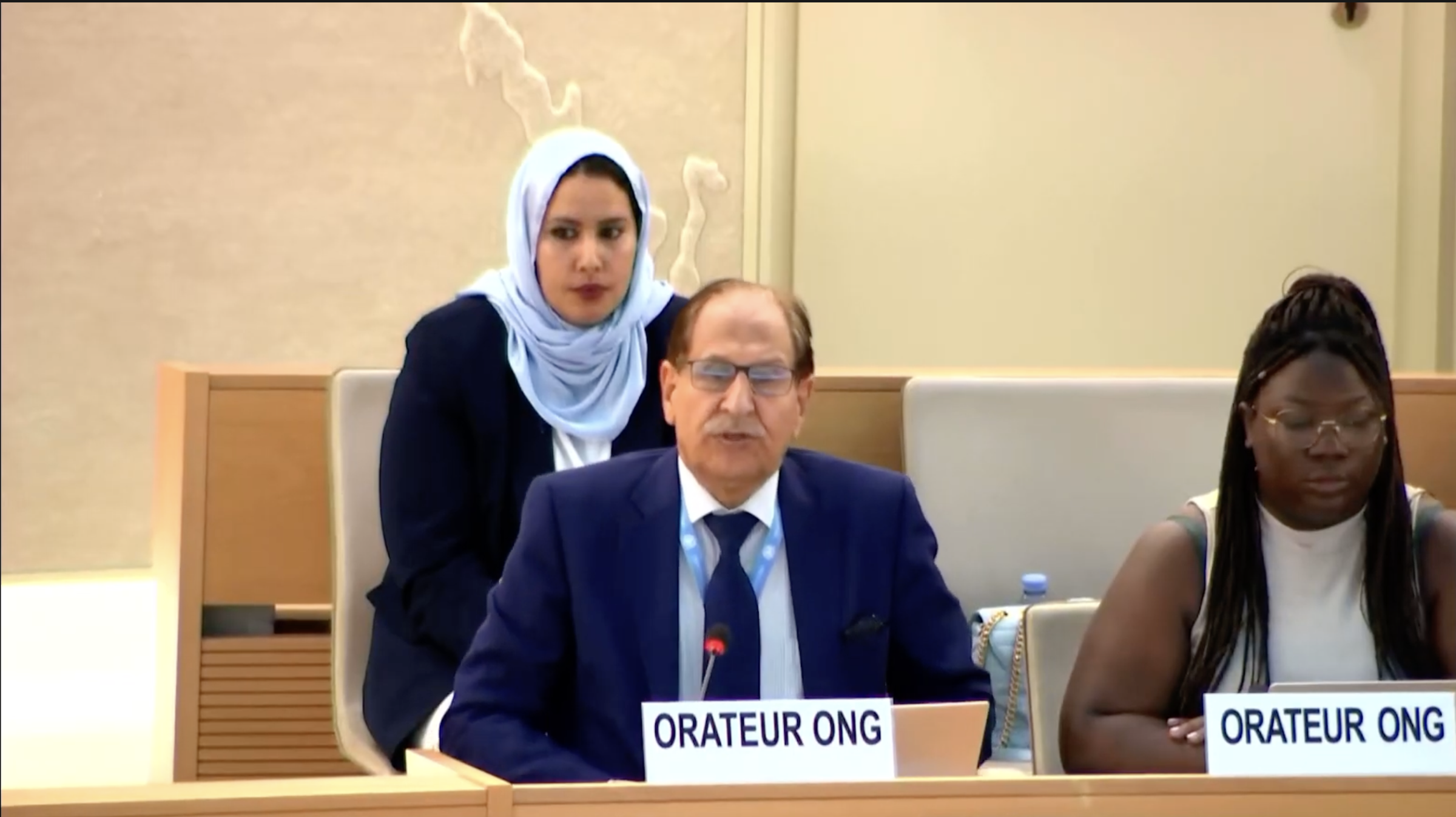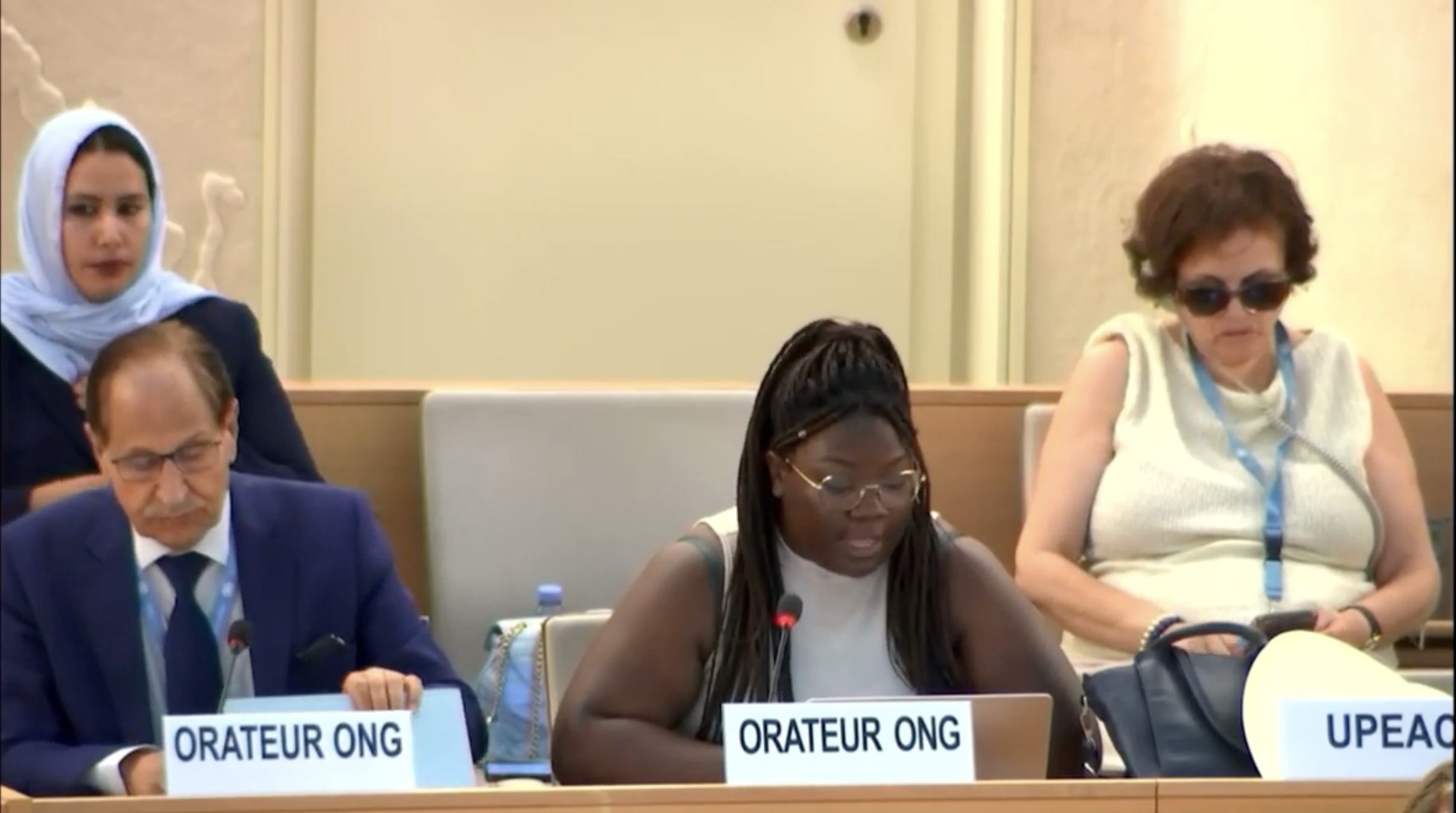Intersessional high-level panel discussion on the incompatibility between democracy and racism pursuant to HRC 53/21
26 August 2025
Joint Statement of International Organization for the Elimination of All Forms of Racial Discrimination (EAFORD) and Geneva International Centre for Justice
Delivered by Mutua K. Kobia
Thank you, Mr. President,
We are deeply appalled and saddened by the rise of the evil scourge of racism and racial discrimination, which has no place in a democratic world. Democracy and racism are fundamentally incompatible, and where racism persists, democracy itself is undermined. We remain especially concerned by the numerous challenges and barriers that continue to obstruct progress in combating racism and racial discrimination. These challenges weaken good practices and threaten the implementation of the Durban Declaration and Programme of Action in its entirety.
Most notably, there is a lack of adequate publication, distribution, and resourcing of the DDPA. Far too often, decision-makers do not have access to this vital document. How can we expect informed and principled decision-making if the very framework guiding the fight against racism is not in their hands?
Equally troubling is the disinformation and misinformation surrounding the DDPA, which distorts its purpose and weakens international commitment towards its goals. Mr. President, the DDPA must be well-known, widely available, and properly resourced to tackle the challenges addressed today. To this end, EAFORD and Geneva International Centre for
Justice recommend:
1. That Member States and the UN allocate dedicated funding for the publication, translation, and broad dissemination of the DDPA; and
2. That training and awareness-raising on the DDPA be integrated into decision- making processes at national, regional, and international levels.
Only then can this landmark document serve as a guide toward good practices and address challenges in pursuit of a healthy democracy.
Thank you.









